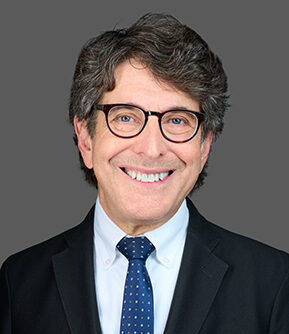OIG Issues Favorable Opinion Concerning Bonus Payments to Employed Physicians
The U.S. Department of Health and Human Services Office of Inspector General (OIG) recently considered the question whether an employed physician can be paid bonus compensation relating to procedures performed by the physician without violating the federal Anti-Kickback Statute (AKS).
In the recent Advisory Opinion 23-07, the OIG concluded, based on the facts presented, that the payment of such bonus compensation would not violate the AKS. In reaching this conclusion, the OIG relied on the applicability of the statutory exception and regulatory safe harbor for bona fide employees under the AKS.
The Facts
The facts pertaining to the proposed bonus compensation arrangement were as follows:
The physician group seeking a favorable opinion (Requestor) is a multi-specialty physician practice with approximately 11 employed physicians (Physician-employees).
The Physician-employees perform outpatient surgical procedures at one of two ambulatory surgical centers (ASCs) operated by the Requestor.
The Physician-employees are paid base compensation in connection with their provision of services including services that are subject to the AKS because they are services for which payment may be made under federal health care programs.
The Requestor proposes to implement an employment compensation arrangement (Proposed Arrangement) pursuant to which each of the Physician-employees, in addition to their base compensation, would be paid bonus compensation in exchange for the services they provide on behalf of the Requestor.
Specifically, when a Physician-employee performs outpatient surgical procedures in a given calendar quarter at either of the two ASCs operated by the Requestor, the Physician-employee would receive a bonus of 30% of the Requestor’s net profits from the ASC facility fee collections attributable to that physician’s procedures performed at the ASC for that quarter.
The Requestor certified that all Physician-employees would be bona fide employees of Requestor in accordance with the definition of the term “employee” as that term is defined in Section 3121(d)(2) of the Internal Revenue Code (Code).
The Requestor further certified that it would not furnish any “designated health services” as that term is used in the Stark Law (42 C.F.R. § 411.351), and that the Proposed Arrangement would not implicate the Stark Law.
The OIG’s Analysis
In issuing the favorable opinion, the OIG’s analysis proceeded as follows:
The AKS makes it a criminal offense to knowingly and willfully offer, pay, solicit or receive any remuneration to induce, or in return for, the referral of an individual to a person for the furnishing of, or arranging for the furnishing of, any item or service reimbursable under a federal health care program.
Under the AKS, there is both a statutory exception and a regulatory “safe harbor” for bona fide employees. They provide that “remuneration” for AKS purposes does not include any amount paid by an employer to an employee, who has a bona fide employment relationship with the employer, for employment in the furnishing of any item or service for which payment may be made under a federal health care program, with the term “employee” having the same meaning as it does for purposes of Section 3121(d)(2)of the Code.
The ASC procedures that form the basis for the bonus compensation are referred to the ASC by the Physician-employees and the bonus is based on revenues resulting from those referrals, thereby implicating the AKS.
However, the bonus compensation under the Proposed Arrangement would be protected by the statutory exception and regulatory safe harbor for employees because:
- The Requestor certified that the Physician-employees would be bona fide employees of the Requestor in accordance with the definition of that term set forth Section 3121(d)(2) of the Code; and
- The bonus compensation would constitute an amount paid by an employer to an employee for employment in the furnishing of an item or service for which payment may be made under a federal health care program.
Additional Observations
The opinion makes it clear that, properly structured, amounts paid as bonus compensation to employees (like fixed amounts) will be entitled to protection under the statutory exception and the safe harbor for bona fide employees.
To constitute an amount paid by an employer to an employee for employment in the furnishing of an item or service (as is required for protection under the statutory exception and the safe harbor), the bonus compensation must be tied to the services performed by the employee and not just to referrals.
The Requestor was not required to represent that the compensation was fair market value as that is not specifically required under either the statutory exception or the safe harbor (although the OIG has clearly stated that these exempt only those payments to employees which are for the provision of covered items or services and, since referrals do not represent covered items or services, payments to employees which are for the purpose of compensating such employees for the referral of patients “would likely not” be covered by the employee exemption).[1]
In issuing the opinion, the OIG was careful to note that a similar arrangement involving bonus payments to independent contractor physicians or other non-employees, or involving bonus payments to the physicians as ownership distributions are not protected by the opinion and may in fact raise fraud and abuse concerns under the AKS.
The opinion’s basic analysis is consistent with various other recently-issued advisory opinions involving compensation to employees. See, e.g., Advisory Opinion 22-03 (2/14/22) (involving payment of salaries to and tuition costs on behalf of, employees); Advisory Opinion 21-15 (11/5/21) (involving salary payments to a CRNA for the ordering and furnishing of anesthesia items and services).
[1] See, e.g., 12/22/92 Letter from D. McCarty Thornton (OIG) to T.J. Sullivan (Internal Revenue Service)


